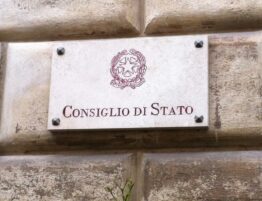
The Consiglio di Stato (the Italian Council of State) has granted Zunarelli – Studio Legale Associato’s appeals which challenged some TAR (Regional Administrative Courts) rulings which had rejected the jurisdiction of Administrative Judges with concern to applications against the withdrawal of public funds.
For many years, the correct allocation of jurisdiction between Ordinary Courts and Administrative Courts concerning this issue has been the subject of conflicting case law interpretations and has given rise to many judgements both by the Corte di Cassazione and by the Consiglio di Stato, aimed at clarifying when one Judge or the other should decide over a case when applications are filed against revocations of public funds or incentives.
The last decision, also confirmed by the judgment of the Consiglio di Stato, Plenary Conference n. 6/2014, is the one according to which “if a dispute arises in relation to the phase in which the funds are granted or in which they are withdrawn based on an alleged breach of the recipient, the jurisdiction rests with the ordinary courts, even if dealing with acts referred to as revocation, forfeiture and termination, provided that they are based on the recipient’s alleged breach of the obligations undertaken in order to obtain the funds. The private individual enjoys instead a subjective situation of legitimate interest (and therefore the appeal shall be filed with the TAR, Editor’s note) if the dispute concerns a procedural stage preceding the decision granting the benefit, or if, following the granting of the benefit, the measure has been canceled or revoked due to lack of legality or to initial contrast with the public interest.”
The above distinction -which seems absolutely clear in theory- poses, however, some problems when concretely applied, since for the purposes of its proper application, it implies the Judges’ careful consideration of the characteristics of the granted incentives and of the vices challenged during the revocation, with the risk, if they do not do so, of reaching the wrong conclusions.
This is just what happened in the case at hand, as the judgment of first instance had stated that the vices which had been challenged when revoking the funding, granted under Article 103 of Law, 23 December 2000, n. 388 for the development of e-commerce activities, were to be regarded as the recipient’s breach of the obligations undertaken when applying for the incentive.
However, the Firm’s appeal -filed under Article 105 of the Italian Administrative Procedure Code- brought to light that the reasons for the revocation which had been provided by the State were clearly linked to the alleged lack of legality of the granting procedure and therefore the judgment had been properly brought before the TAR.
The Consiglio di Stato, Sec. VI, shared this view, allowing the appeals (the last judgement was filed on 14 April, 2015) and providing clarifications on the hermeneutical operation that the Judge has to carry out in relation to the alleged flaws in the revocation when the granting procedure is complex: and this in order to properly establish who has jurisdiction over the application.
The jurisdiction of the administrative courts was, therefore, declared and the parties were remitted to the TAR for the continuation of the proceedings.
(Bologna Office – Andrea Giardini – 0039(0)512750020)









